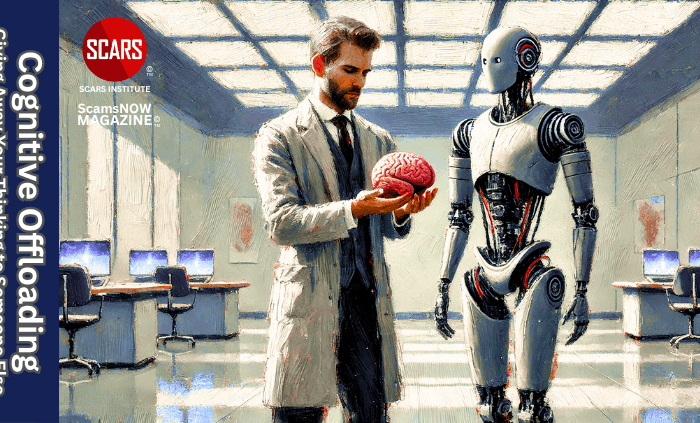Evolved Apes NFT Scam
The Truth Behind Yet Another Internet Fake Bubble
Primary Category: Crimes & Criminals
Author:
• SCARS Editorial Team – Society of Citizens Against Relationship Scams Inc.
About This Article
Evolved Apes NFT: The Former Jewel of NFTs – Scammers Face Up to 40 Years in Prison for $2.7M Fraud. In a significant crackdown on NFT-related fraud, three British nationals involved in the “Evolved Apes” NFT scam have been charged in the United States with wire fraud and money laundering. The suspects, Mohamed-Amin Atcha, Mohamed Rilaz Waleedh, and Daood Hassan, are accused of orchestrating a scheme that defrauded investors out of $2.7 million.
If convicted, they face up to 40 years in prison. This case underscores the vulnerabilities within the burgeoning NFT market and highlights the need for regulatory oversight to protect investors from similar fraudulent schemes. NFTs, or Non-Fungible Tokens, represent ownership of unique digital assets, and their initial hype promised a revolutionary change in digital ownership and the creator economy.
The Evolved Apes case reveals how easily scammers can exploit this technology, manipulating prices and abandoning projects after securing significant funds, thereby leaving investors with worthless digital assets and a deep sense of betrayal.

Evolved Apes NFT – the Former Jewel of NFTs – Scammers Face Up to 40 Years in Prison for $2.7M Fraud
In a significant crackdown on NFT-related fraud, three British nationals involved in the “Evolved Apes” NFT scam have been charged in the United States with wire fraud and money laundering. The suspects, Mohamed-Amin Atcha, Mohamed Rilaz Waleedh, and Daood Hassan, are accused of orchestrating a scheme that defrauded investors out of $2.7 million. If convicted, they face up to 40 years in prison.
What is an Evolved Apes NFT and Why Did it Matter?
An NFT is a Non-Fungible Token (NFT.) It is a unique digital asset that represents ownership or proof of authenticity of a particular item, often digital art, music, video, or other forms of media. Unlike cryptocurrencies such as Bitcoin or Ethereum, which are fungible and can be exchanged on a one-to-one basis, NFTs are indivisible and unique. Each NFT is stored on a blockchain, a decentralized digital ledger that ensures its uniqueness and ownership history cannot be altered.
NFTs use blockchain technology, typically the Ethereum blockchain, to record their creation and subsequent transactions. This ensures transparency, security, and the immutability of ownership records. NFTs can be bought, sold, and traded on various online marketplaces like OpenSea, Rarible, and Foundation.
Why Did Evolved Apes NFTs Matter?
The initial hype around Non-Fungible Tokens (NFTs) promised a revolutionary change in digital ownership and the creator economy, but this promise has mostly turned out to be an illusion and a scam for many.
At the height of the NFT craze, investors were enticed by stories of astronomical profits, leading to a speculative bubble. The belief that owning a digital certificate tied to a piece of digital art or media would guarantee long-term value has proven to be false for many. As the market cooled, many NFTs lost significant value (as in almost all,) leaving investors with assets worth a fraction of their purchase price.
This delusion was fueled by a lack of understanding of the underlying technology and market dynamics, as well as by the manipulation and opportunism of bad actors within the space. In other words, it was an unsupported bubble.
The environmental impact of blockchain technology and the prevalence of scams have further tarnished the idealistic view of NFTs, revealing that, for many, the perceived revolutionary potential was more fantasy than reality
The ‘Believed’ NFT Value
- Ownership and Authenticity: NFTs provide a way to verify the ownership and authenticity of digital assets. This was revolutionary for digital art and collectibles, where replication and distribution without proper attribution were rampant issues. Artists could mint their works as NFTs, ensuring they received proper credit and compensation for their creations.
- New Revenue Streams for Creators: NFTs opened up new revenue opportunities for artists, musicians, and other content creators. By selling their works as NFTs, creators could reach a global audience and potentially earn significant income. Additionally, smart contracts embedded in NFTs could ensure creators received royalties from secondary sales, providing a continual income stream.
- Digital Collectibles and Gaming: The gaming industry saw significant interest in NFTs, as they allowed for the creation of unique in-game items and assets. Players could own, trade, and sell digital collectibles, adding a new layer of engagement and monetization within games.
- Cultural Impact: NFTs became a cultural phenomenon, with major sales making headlines and attracting mainstream attention. Celebrities, brands, and institutions began exploring NFTs as a way to engage with fans and audiences in new, innovative ways.
- Investment and Speculation: For some, NFTs represented a new form of investment. As the market grew, some NFTs appreciated significantly in value, attracting speculators and investors looking for high returns. This speculative aspect added to the buzz and rapid growth of the NFT market.
However, the NFT market has faced steady criticism and challenges. Issues such as environmental concerns related to blockchain energy consumption, the volatility of NFT prices based on nothing of real value, and the potential for fraud and scams have been raised constantly.
NFTs appear to be leaving a lasting negative impact on digital ownership and the creator economy, driving ongoing discussions about their future and potential applications.
The Evolved Apes NFT Scam and Its Mechanisms
The “Evolved Apes” NFT project launched in September 2021, during the height of the NFT boom. The project entailed selling 10,000 unique NFT artworks, with promises of a forthcoming video game exclusively for Evolved Apes NFT holders. The perpetrators created an elaborate façade of legitimacy, including a detailed “roadmap” and “phases” on their website, which falsely indicated ongoing development and future benefits for investors. However, less than two weeks after the initial sale, the website was abruptly taken down, leaving investors without their promised returns and no way to retrieve their funds.
Evolved Apes NFT Scam Legal Actions and Implications
The U.S. Attorney’s Office for the Southern District of New York, led by U.S. Attorney Damian Williams, emphasized that fraud laws extend to the digital space, including NFTs. Williams highlighted the seriousness of NFT fraud and the necessity for accountability. FBI Assistant Director James Smith reinforced this stance, noting that deceiving customers in such a manner breaches trust and ethical standards.
The defendants allegedly manipulated the prices of the Evolved Apes NFTs and diverted the funds raised from the sales, abandoning the project and its investors. Their actions have drawn attention to the vulnerabilities within the burgeoning NFT market and the need for regulatory oversight to protect investors from similar fraudulent schemes.
According to the U.S Department of Justice:
Three United Kingdom Nationals Charged In Connection With Evolved Apes NFT Scam
Damian Williams, the United States Attorney for the Southern District of New York, and James Smith, the Assistant Director in Charge of the New York Field Office of the Federal Bureau of Investigation (“FBI”), announced the unsealing of an Indictment charging MOHAMED-AMIN ATCHA, MOHAMED RILAZ WALEEDH, and DAOOD HASSAN, all United Kingdom nationals, with conspiracy to commit wire fraud and money laundering. The charges arise from the defendants’ scheme to defraud victims into purchasing digital artwork known as the “Evolved Apes NFT” collection of non-fungible tokens (“NFTs”). The case has been assigned to U.S. District Judge J. Paul Oetken.
U.S. Attorney Damian Williams said: “As alleged, the defendants ran a scam to drive up the price of Evolved Apes NFT digital artwork through false promises about developing a videogame. They allegedly took investor funds, never developed the game, and pocketed the proceeds. Digital art may be new, but old rules still apply: making false promises for money is illegal. As we allege, thousands of people believed these false promises and were tricked into buying these Evolved Apes NFTs, including here in the Southern District of New York. NFT fraud is no game, and those responsible will be held accountable.”
FBI Assistant Director in Charge James Smith said: “These three defendants allegedly were part of a scheme to pump up the price of NFTs with lies to the public about developing a related videogame, and to surreptitiously transfer the proceeds of the fraud to their personal accounts. Ghosting customers without fulfilling a promise not only reflects poor business integrity, it also violates the implicit trust buyers place in sellers when purchasing a product, no matter if that product is in a store or stored on a blockchain. The FBI remains committed to pursuing those who perpetrate fraudulent schemes out of a selfish desire for a quick profit.”
According to the allegations in the Indictment:
In the fall of 2021, ATCHA, WALEEDH, and HASSAN executed a type of scam commonly known as a “rug pull,” where developers advertise a digital project, collect funds from purchasers, then abandon the project and keep the funds. ATCHA, WALEEDH, and HASSAN allegedly created and promoted an Evolved Apes NFT project that involved the marketing of digital images of cartoon apes. The following is a graphic typical of the images that became Evolved Apes NFTs:
The creators and promoters of the Evolved Apes project publicly promised to use funds raised from selling the NFTs to develop a videogame based on the NFTs, which they claimed would increase the NFTs’ value. But after selling the NFTs and collecting large sums from purchasers, including in the Southern District of New York, they quickly shut down the Project’s website and kept the funds without developing the promised videogame. ATCHA, WALEEDH and HASSAN then laundered the misappropriated funds through multiple cryptocurrency transactions to their own personal accounts to conceal their ill-gotten gains.
ATCHA, 23, WALEEDH, 23, and HASSAN, 23, all United Kingdom nationals, are charged with one count of conspiracy to commit wire fraud and one count of conspiracy to commit money laundering, each of which carries a maximum sentence of 20 years in prison.
Broader Impact on the NFT Market
This case underscores the risks associated with the unregulated NFT market.
As digital assets continue to exist, the potential for fraud has also increased astronomically, highlighting the need for due diligence among investors and stronger regulatory frameworks. The legal repercussions faced by the “Evolved Apes” scammers serve as a warning to others considering similar fraudulent activities and aim to restore some level of trust and security in the NFT market. It also serves as a warning to investors that want to invest in intangibles like NFTs.
Please Rate This Article
Please Leave Us Your Comment
Also, tell us of any topics we might have missed.
Thank you for your comment. You may receive an email to follow up. We never share your data with marketers.
-/ 30 /-
What do you think about this?
Please share your thoughts in a comment above!
More Crimes & Criminals Stories
-/ 30 /-
What do you think about this?
Please share your thoughts in a comment above!
SCARS LINKS: AgainstScams.org RomanceScamsNOW.com ContraEstafas.org ScammerPhotos.com Anyscam.com ScamsNOW.com
reporting.AgainstScams.org support.AgainstScams.org membership.AgainstScams.org donate.AgainstScams.org shop.AgainstScams.org
youtube.AgainstScams.org linkedin.AgainstScams.org facebook.AgainstScams.org
ARTICLE RATING
TABLE OF CONTENTS
CATEGORIES
MOST POPULAR COMMENTED ARTICLES
POPULAR ARTICLES
U.S. & Canada Suicide Lifeline 988
![NavyLogo@4x-81[1]](https://scamsnow.com/wp-content/uploads/2025/04/NavyLogo@4x-811.png)
ARTICLE META
WHAT PEOPLE ARE TALKING ABOUT LATEST SITE COMMENTS
See Comments for this Article at the Bottom of the Page
on Scam Victims Use Work To Avoid Healing: “The last 6 years have been the most difficult of my life. The pandemic, having both parents in the hospital…” Jun 29, 18:38
on Entitlement Mentality And How Scam Victims Often Lose Their Path To Recovery – 2024: “Thank you for this discussion of entitlement. I can see from the descriptions listed that I have not felt entitlement.…” Jun 29, 18:22
on Samurai Wisdom and Rituals for Clearing the Mind After Scam Trauma – 2025 – [VIDEOS]: “A great guide on how to move forward in our recovery process with a calm mind, cleansed on an ongoing…” Jun 28, 07:34
on Delayed Gratification and Patience in Scam Victim Recovery – 2025 – [VIDEOS]: “We want to recover quickly and… we make new mistakes. How not to speed up the recovery process, how to…” Jun 28, 06:41
on The Unique Injury Of Betrayal Trauma On Scam Victims – 2024: “Primarily because you did not see it coming” Jun 27, 23:57
on Changes In A Scam Victim’s Life: “I really detest the way my trust in others has been affected by the scamming I went through. I used…” Jun 27, 14:47
on The Unique Injury Of Betrayal Trauma On Scam Victims – 2024: “Betrayal Trauma is the worst feeling ever. Why does it seem so much worse when a scammer does that to…” Jun 27, 14:34
on EMDR Therapy For Scam Victims’ Trauma – A Part Of The Recovery Process For Many – 2024: “Very comprehensive article explaining all aspects of EMDR. I’d only heard of it before and now I have a much…” Jun 26, 19:01
on Forgiving Yourself After Surviving a Romance or Investment Scam – 2025: “Thank you for this valuable article. Self-forgiveness was for me the biggest step that led to my recovery. That also…” Jun 26, 17:28
on Counseling And Your Native Language: “These points make perfect sense. I can’t imagine trying to express complex emotions in a second language. I realize many…” Jun 26, 16:05
on Thought-Terminating Cliches – How What You and Others Say Stops Critical Thinking and Recovery for Scam Victims – 2025: “I didn’t realize that these “innocent phrases” clichés ending thoughts, can have such effect / negative -inhibiting / on our…” Jun 26, 14:48
on Scam Victim Resistance In Support Groups Therapy Or Counseling Can Destroy Opportunities For Recovery – 2024: “Working with either a support group or therapist to me means a self commitment to actively participating in the therapy.…” Jun 24, 21:01
on ‘I Just Want To Forget It’ – Denial & Avoidance Are Natural But Will Not Help Scam Victims On Their Path To Recovery From Scams – 2024: “My financial loss, the shock and betrayal of the crime ending all combined to fray my nerves and spend hours…” Jun 24, 20:10
on You Hate Being Told What To Do? How Your Rebellious Mentality Can Sabotage Your Recovery – 2025: “I am a bit of a rebel, and the moment someone tells me to do something, worse, does it even…” Jun 24, 15:04
on You Hate Being Told What To Do? How Your Rebellious Mentality Can Sabotage Your Recovery – 2025: “You are very welcome” Jun 24, 03:01
on You Hate Being Told What To Do? How Your Rebellious Mentality Can Sabotage Your Recovery – 2025: “This is a great article, which makes perfect sense as to why anyone would resist the help offered to them.…” Jun 23, 20:01
on Scam Victims’ Responsibilities – 2021 [Updated 2025]: “Thank you for this article. As I continue my journey, I focus on the here and now and let the…” Jun 21, 16:26
on Scam Victims Avoid Or Escape The Aftermath Of Scams – How Denial And Distraction Avoid Confronting Reality – 2024: “In the earliest days after my crime I felt powerless, helpless and weak. I had been through so much in…” Jun 21, 14:46
on Problems and Opportunities – Thoughts on Psychological Reframing – 2025: “An article that really helped me look at the problems in my life from a different point of view and…” Jun 21, 14:42
Important Information for New Scam Victims
Please visit www.ScamVictimsSupport.org – a SCARS Website for New Scam Victims & Sextortion Victims
SCARS Institute now offers a free recovery program at www.SCARSeducation.org
Please visit www.ScamPsychology.org – to more fully understand the psychological concepts involved in scams and scam victim recovery
If you are looking for local trauma counselors, please visit counseling.AgainstScams.org
If you need to speak with someone now, you can dial 988 or find phone numbers for crisis hotlines all around the world here: www.opencounseling.com/suicide-hotlines
Statement About Victim Blaming
Some of our articles discuss various aspects of victims. This is both about better understanding victims (the science of victimology) and their behaviors and psychology. This helps us to educate victims/survivors about why these crimes happened and not to blame themselves, better develop recovery programs, and help victims avoid scams in the future. At times, this may sound like blaming the victim, but it does not blame scam victims; we are simply explaining the hows and whys of the experience victims have.
These articles, about the Psychology of Scams or Victim Psychology – meaning that all humans have psychological or cognitive characteristics in common that can either be exploited or work against us – help us all to understand the unique challenges victims face before, during, and after scams, fraud, or cybercrimes. These sometimes talk about some of the vulnerabilities the scammers exploit. Victims rarely have control of them or are even aware of them, until something like a scam happens, and then they can learn how their mind works and how to overcome these mechanisms.
Articles like these help victims and others understand these processes and how to help prevent them from being exploited again or to help them recover more easily by understanding their post-scam behaviors. Learn more about the Psychology of Scams at www.ScamPsychology.org
SCARS INSTITUTE RESOURCES:
If You Have Been Victimized By A Scam Or Cybercrime
♦ If you are a victim of scams, go to www.ScamVictimsSupport.org for real knowledge and help
♦ Enroll in SCARS Scam Survivor’s School now at www.SCARSeducation.org
♦ To report criminals, visit https://reporting.AgainstScams.org – we will NEVER give your data to money recovery companies like some do!
♦ Follow us and find our podcasts, webinars, and helpful videos on YouTube: https://www.youtube.com/@RomancescamsNowcom
♦ Learn about the Psychology of Scams at www.ScamPsychology.org
♦ Dig deeper into the reality of scams, fraud, and cybercrime at www.ScamsNOW.com and www.RomanceScamsNOW.com
♦ Scam Survivor’s Stories: www.ScamSurvivorStories.org
♦ For Scam Victim Advocates visit www.ScamVictimsAdvocates.org
♦ See more scammer photos on www.ScammerPhotos.com
You can also find the SCARS Institute on Facebook, Instagram, X, LinkedIn, and TruthSocial
Psychology Disclaimer:
All articles about psychology and the human brain on this website are for information & education only
The information provided in this and other SCARS articles are intended for educational and self-help purposes only and should not be construed as a substitute for professional therapy or counseling.
Note about Mindfulness: Mindfulness practices have the potential to create psychological distress for some individuals. Please consult a mental health professional or experienced meditation instructor for guidance should you encounter difficulties.
While any self-help techniques outlined herein may be beneficial for scam victims seeking to recover from their experience and move towards recovery, it is important to consult with a qualified mental health professional before initiating any course of action. Each individual’s experience and needs are unique, and what works for one person may not be suitable for another.
Additionally, any approach may not be appropriate for individuals with certain pre-existing mental health conditions or trauma histories. It is advisable to seek guidance from a licensed therapist or counselor who can provide personalized support, guidance, and treatment tailored to your specific needs.
If you are experiencing significant distress or emotional difficulties related to a scam or other traumatic event, please consult your doctor or mental health provider for appropriate care and support.
Also read our SCARS Institute Statement about Professional Care for Scam Victims – click here
If you are in crisis, feeling desperate, or in despair, please call 988 or your local crisis hotline.
More ScamsNOW.com Articles
A Question of Trust
At the SCARS Institute, we invite you to do your own research on the topics we speak about and publish. Our team investigates the subject being discussed, especially when it comes to understanding the scam victims-survivors’ experience. You can do Google searches, but in many cases, you will have to wade through scientific papers and studies. However, remember that biases and perspectives matter and influence the outcome. Regardless, we encourage you to explore these topics as thoroughly as you can for your own awareness.














![scars-institute[1]](https://scamsnow.com/wp-content/uploads/2025/04/scars-institute1.png)
![niprc1.png1_-150×1501-1[1]](https://scamsnow.com/wp-content/uploads/2025/04/niprc1.png1_-150x1501-11.webp)

Leave a Reply